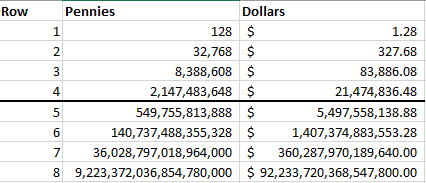Category: Politics
What’s Next – Prediction
My prediction for Trump’s next heap of crazy (or an episode of The Trump Show that runs in my head): Trump gets some foreign state – I’m thinking Erdoğan from Turkey – to admit to perpetrating massive vote fraud. Mailing millions of ballots to some states. Hacking electronic voting platforms. All of the above. Tries to invalidate the entire election on the basis of this “totally reliable” evidence.
The Problem with Facts
Texas v. Pennsylvania
Democracy isn’t letting people vote then invalidating the ones you don’t like, but here we are — Texas v. Pennsylvania and its accompanying amicus briefs. Republicans are the party of states rights — unless the state does something they don’t like. But, I suppose, disqualifying the votes of people who don’t vote the way you want is the logical extension of the “real American” mantra touted by Palin. And the tea party’s “no taxation without representation” … uhh, we all voted. You have representation. “Well, they don’t represent me” logic. Having lived through many years of minority rule, I get their point. Philosophically George W Bush didn’t represent me. Trump sure as hell doesn’t represent me. But — however much we may philosophically differ, they did represent me. Because that’s how American government works.
Could we use modern technology to have direct representation? Sure. Direct representation would eliminate gerrymandering and the oversized influence of low-population-density states. It would be rather inequitable — who has the time to read through every piece of proposed legislation, get online and vote their opinion, etc. But it could happen. Even then, though … 60% of the people vote for X, that’s what we get. And the 40% who voted not-X suck it up.
School’s out for winter
My local school district is moving to remote learning for what’s left of December and a few weeks in January. Not unexpected, and a part of the reason we chose a different learning option for Anya this year. The Superintendent’s message highlights the two big problems I expected with in-person learning. Firstly, 28 positive cases resulted in 467 quarantined individuals. That’s about 16 people in quarantine for every infected individual. The district had about 3,000 students before some percentage opted to use virtual learning this year. Add some 300 staff — they’ve had about 15% of the school out in quarantine in the past three weeks. And that’s before any increase in infections from Thanksgiving. Secondly, people who send their kids to school with COVID-like symptoms (I believe they have a special nurse’s office in each school for those kids to hang out in all day so people who have to swing by the nurse’s office to get medication or a scrape patched up aren’t exposed to a room full of sick kids) and even while awaiting test results.
Liberatarianism is great in theory … but, in practice, the entire point of the belief system is that you’re free to make whatever choice you decide to make. Even if you want to ignore the bears.
Musing on Pardons
Understanding Exponential Growth
Using the data from https://covidtracking.com/data/national/cases: in the most recent seven day span (10-16 November), 1,056,346 people in the US have been infected with this coronavirus. The total number of cases yesterday was 11,047,064. That means 9.562% of the *total cases* in the US were new cases in the past week.
This is how exponential growth works — and why you heard a lot about ‘flattening the curve’ earlier in the year. If you put a penny on the first square of a chess board, double it and put two pennies on the second square, double it and put four pennies on the third square, and continue in that fashion … mathematically, you have 2^n pennies on each square, where n is the numeric sequence of the square, 0-63. On the last square in the first row, square #7, there are 2^7 pennies — 128 pennies, or a buck and twenty eight cents. Not a lot. And the end of the second row, you have 2^15 pennies — 32,768 pennies. That’s $327.68 — over three hundred bucks. A lot more than a buck, but not a huge amount of money. But you’re up to 2^23 at the end of the third row — 8,388,608 pennies or $83,886.08. Eighty three grand is a lot of money. By the time you get to the mid-point on the board, the end of the fourth row, you have 2^31 pennies on a square. 2,147,483,648 pennies for $21,474,836.48 — over twenty million dollars. A lot of money, but it’s possible. The second half of the chessboard is where exponential growth becomes unsustainable. The end of the fifth row is 2^39 — 549,755,813,888 pennies. The end of the sixth row is 2^47 — 140,737,488,355,328 pennies. The end of the seventh row is 2^55 — On the final square, you have 2^63 … 9,223,372,036,854,775,808 pennies for $92,233,720,368,547,758.08 … 92 quadrillion dollars. If the going price of Earth is only five quadrillion dollars, you’re putting a marker for the entire solar system (and then some) on that last square.
And that ignores the accumulating total — while you have 92 quadrillion dollars on the final square, you have another 92 quadrillion dollars on the entire rest of the board. Now, obviously, we are not doubling our rate of infections every day. But we’re entering “second half of the board” territory just the same.
Always A New Low
Short Story Outline
Movie/story idea — All of the crazy conspiracy theories Trump parrots are actually true. The deep state looking to undermine him. The conspiracy to steal the election, twice. The QAnon idea that Democrats are secret pedophiles or cannibals or whatever looking to take over the country and Trump has been ordained by God himself to save us. Except, unlike mainstream stories where good triumphs over evil … the bad guys win and the savior lives out his life in exile.


